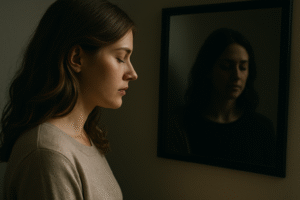Welcome back to another edition of Hypno News with Amber. Today I want to share with you an article by Elizabeth Archer. It details her experience with hypnotherapy. Particularly her journey to prevent herself from becoming an alcoholic.
The truth is that many people suffer from alcohol abuse. Many struggle to overcome it every day. Some fight just to not take that one drink. Others don’t know where to start and continue to spiral. We all have our vices, but the good news is that they all can be overcome. Some of us just need a little extra help. people typically drank in pubs and clubs. However, recent reports suggest that a growing number of people are choosing to drink at home. Meaning that it is likely that more people are consuming more alcohol than ever.
Elizabeth’s Story
The Hypnotist
That is when Elizabeth sought out a hypnotist to help her reduce her alcohol intake. While she does not focus on cessation the fact that her therapy works is an indication that others to could use it to eliminate their addictions.
Georgia, the hypnotherapists explains that while “our unconscious mind makes most of our decisions, so while making a conscious effort to drink less may work in the short term, it doesn’t affect the deeper parts of the brain.”
and “Hypnosis encourages the conscious mind to switch off so the therapist can speak to the unconscious mind directly.”
It sounded so promising that Elizabeth decided to try it.
Her experience
Elizabeth signed up for a group hypnosis session. She remembers arriving at the conference room at a London hotel. Inside was a group of 15 or so people from all walks of life. With various events and actions leading to their problem.
During the session, each person spoke about the reasons why they and others continue to drink. While some people are people pleasures who feel pressured into drinking, others are perfectionists. They might abstain all week only to binge on the weekend. The more she listened the more she identified with being a people pleaser.
She realized that she got herself into all sorts of scrapes. Sometimes she would drink to keep friends company. Other times she would drink because she felt she had let someone down. It seems she learned a lot about herself that night.
After the curtains were closed, the therapist dimmed the lights. They all laid down and closed their eyes. Initially, she says she “struggled to relax my mind and wondered whether hypnosis would work” for her.
However, as the session continued she describes herself as “sinking into a half-walking, half-asleep state”. Something that reminded her of meditation. Elizabeth felt as though her body was floating.
“You drink lots of lovely, fresh water… you can stop drinking whenever you want,” she hears the therapist say. And describes the sound as feeling distant to her. As if her mind was wandering away from the words. And after what seemed like a long time, she woke them up. Elizabeth remembers feeling as if she had been in a deep sleep.
After lunch, there were two more sessions. While she doesn’t remember everything the therapist told her, she remembers feeling calm and relaxed.
The Results
Fairly soon she had her first test. Elizabeth was supposed to be meeting friends in Brighton. She knew the people pleaser Elizabeth would have jumped on the train and rushed over there. But she didn’t. She realized that she didn’t want to go. She told her friends that she wasn’t going. She remembers it felt “oddly satisfying to say no.”
And as the weeks wore on, her friends noticed a difference too. Elizabeth found herself making choices for herself more often. No longer was she running around trying to please everyone else. While she still drinks occasionally she no longer feels the need to get “sloshed” or to drink every night.
Instead, she says that she happily settles for a glass of water.
She goes on to say: “What’s interesting is that I don’t feel as if I’m having to force myself to do it; it’s easy just to say no. While I’m sure I’ll still have the occasional night when I let my hair down, I do feel something inside me has changed.”
Change for Everyone
We all have moments in which we need to change. Elizabeth found that moment after a hangover. You might find it after making a huge mistake. Or maybe its the cost. No matter why you want to stop drinking, Elizabeth’s story shows that we can all overcome our addiction.
If you feel that you are struggling with alcohol addiction, remember that you are not alone. That there are people out there who want to help you. Remember that you can do anything you put your unconscious mind to. And we can help.
Feel free to contact Hoosier Hypnosis if you need help overcoming your addition. No matter what it is, we can talk your unconscious mind into doing what you want it to do. Into doing what you need it to do when your conscious mind can’t seem to.
Hypnosis isn’t magic, but it is a wonderful tool to impact change in your life.




